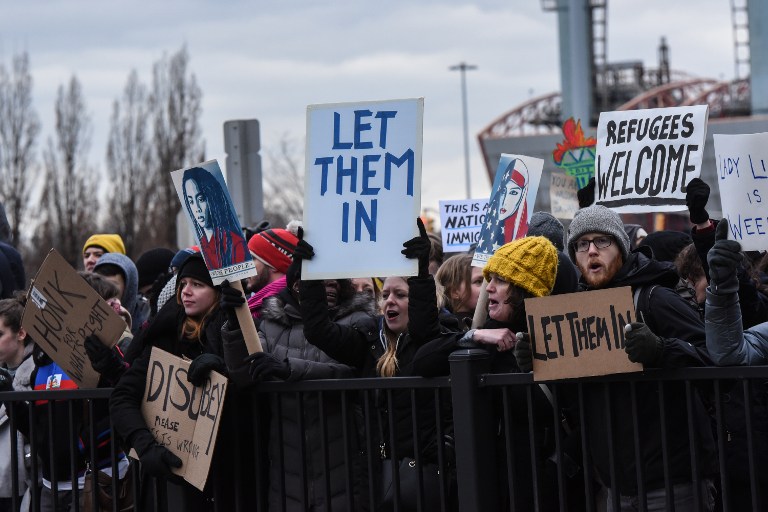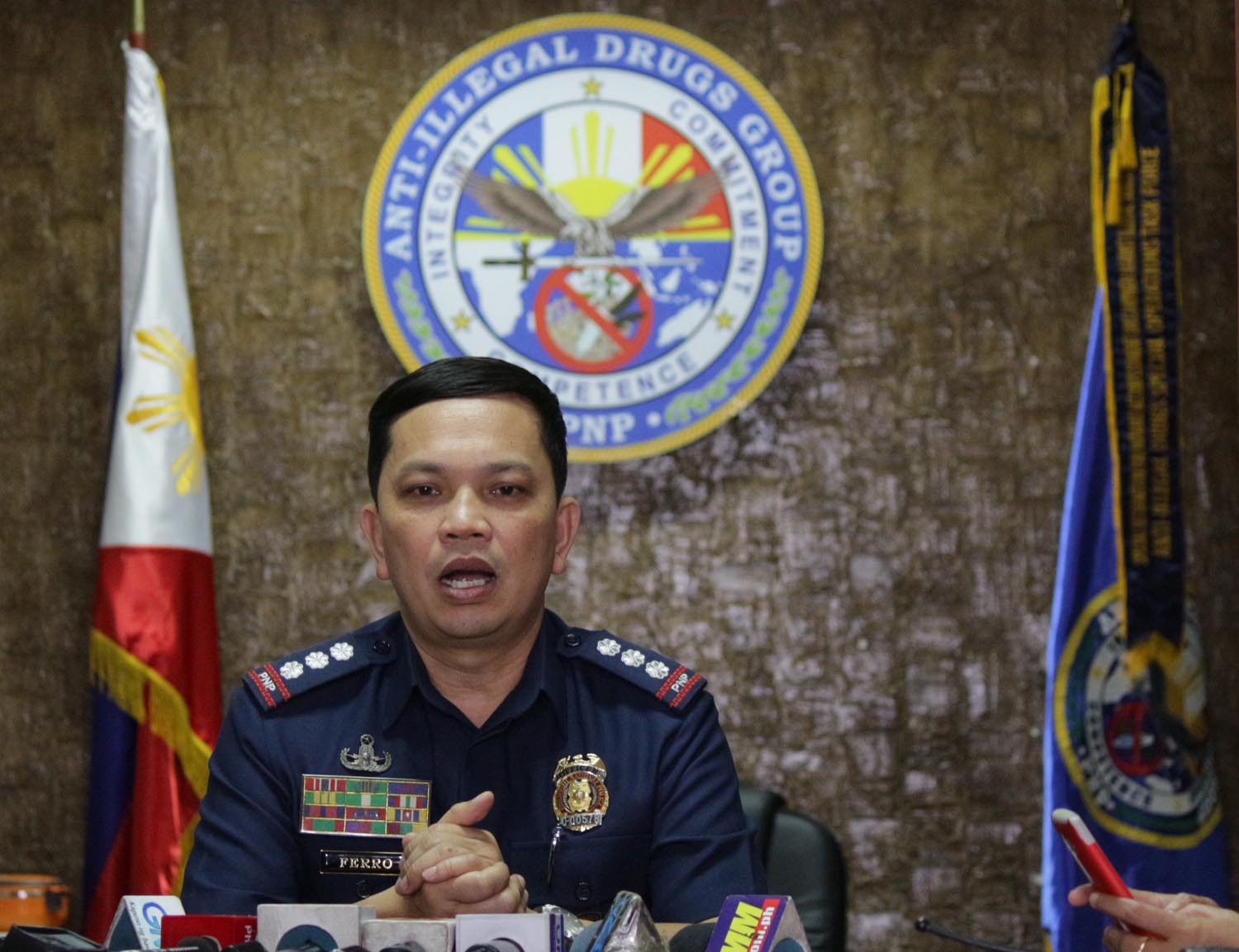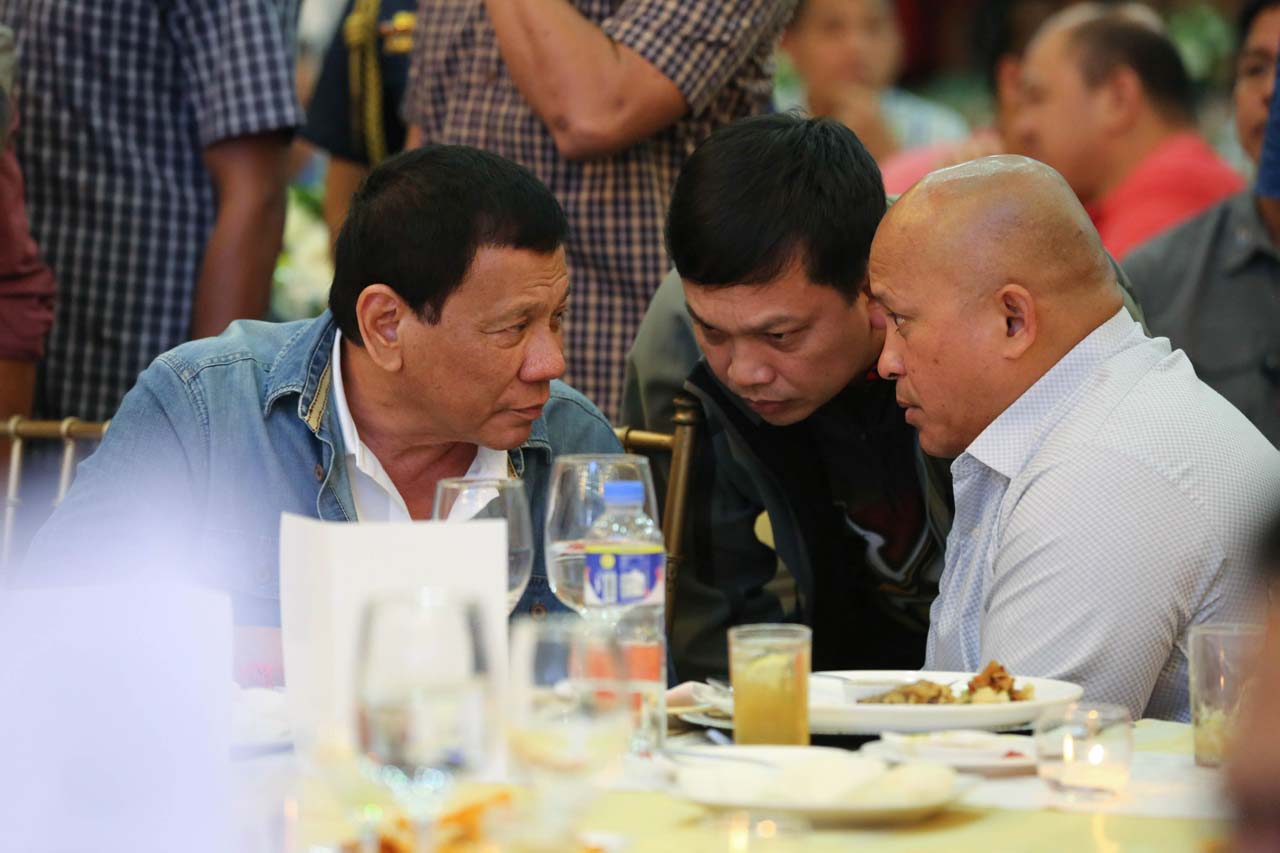
MANILA, Philippines – “Give Mindanao the best men in uniform. Mindanao deserves nothing less.”
Senate President Aquilino Pimentel III on Tuesday, January 31, called on the Philippine National Police (PNP) to stop sending scalawag cops to Mindanao as a form of punishment.
“Mindanao should be treated by the PNP with the same respect that all Filipinos deserve regardless of their faith, their culture, and their economic status,” said Pimentel in a statement to media.
It’s been a long-running joke in the ranks – which is sometimes meant – that erring cops or those who fall out of favor end up assigned to police units in Mindanao.
The joke has become something of a policy in recent months, with PNP chief Ronald dela Rosa’s announcement that cops with suspected links to illegal drugs had been or wouldl be sent to Mindanao.
President Rodrigo Duterte said as much during a late-night press conference on Sunday, January 29.
“Give Mindanao the best men in uniform. Mindanao deserves nothing less,” said Pimentel, who noted that he was “expressing the dismay and apprehension of law-abiding citizens in the South for being the ‘favored dumping ground’ for rogue policemen.”
Duterte, Dela Rosa, and Pimentel all hail from Mindanao. Duterte was mayor of Davao City for over two decades, while Dela Rosa, who was born in nearby Davao del Sur, was Davao city police chief. Pimentel was born in Cagayan de Oro City.
“The President said we need to beef up our presence in Basilan, Jolo, Tawi-Tawi. We need men there. Again, I hope the governor or officials of ARMM (the Autonomous Region in Muslim Mindanao) or of Mindanao who are complaining because their region, province is not a dumping ground… I’m sorry. But that’s the instruction of the President,” said Dela Rosa in a press briefing on Monday, January 30.
He added: “We need to chase after the Abu Sayyaf and in Lanao [del Sur], the Maute Group. Mayors, like the one in Marawi City, complain that they have no police. We’ll add more police there. We’ll bring them [errant cops] there. They can change their ways there.”
It’s not the first time that erring police got reassigned to Mindanao under the Duterte administration.
When Dela Rosa took office in July 2016, he rounded up supposedly corruption cops assigned to anti-illegal drugs units and re-assigned them to different areas in Mindanao.
In an interview with Rappler in July, Dela Rosa explained that this was a stopgap measure, to put a hold on the police personnel’s alleged illegal activities. This was part of their efforts to cleanse their ranks in the war on drugs.
It’s a reasoning that doesn’t sit well with Pimentel.
“They should not be recycled and sent to far-away postings as punishment. This will merely transfer the problem, not put a stop to it,” he said.
Instead, the Senate President said, police should be charged administratively so they can be kicked out of the police force to be “[sent] back to the Police Academy for re-education and re-orientation of values.”
The Senate has investigated several instances of cops apparently going rogue under the Duterte administration.
Late last year, the Senate probed the death of Albuera Mayor Roland Espinosa Sr, among the first local chief executives Duterte accused of being linked to illegal drugs. Espinosa was shot by police inside his jail cell, supposedly because he fought back.
The National Bureau of Investigation had tagged the incident a “rubout.”
Just last week, the Senate heard the case of South Korean businessman Jee Ick Joo, who was kidnapped from his home in Angeles City and killed inside Camp Crame, the PNP headquarters.
The primary suspects in his slay include several police from the PNP’s Anti-Illegal Drugs Groups (AIDG).
Jee’s murder triggered sweeping changes in the PNP. Duterte ordered the dissolution of the AIDG and a stop to all anti-illegal drugs operations by police.
The PNP will instead focus on anti-criminality efforts and an “internal cleanse” targeting errant cops. – Rappler.com






















